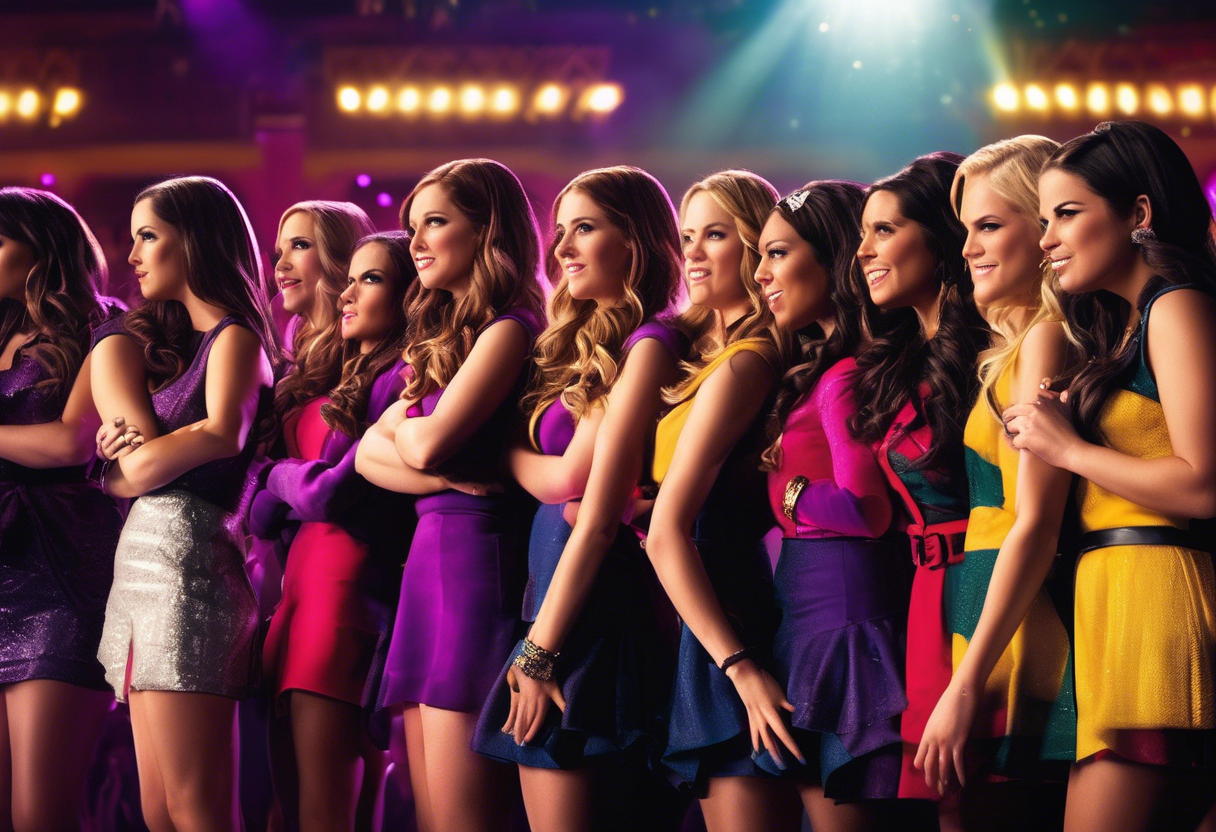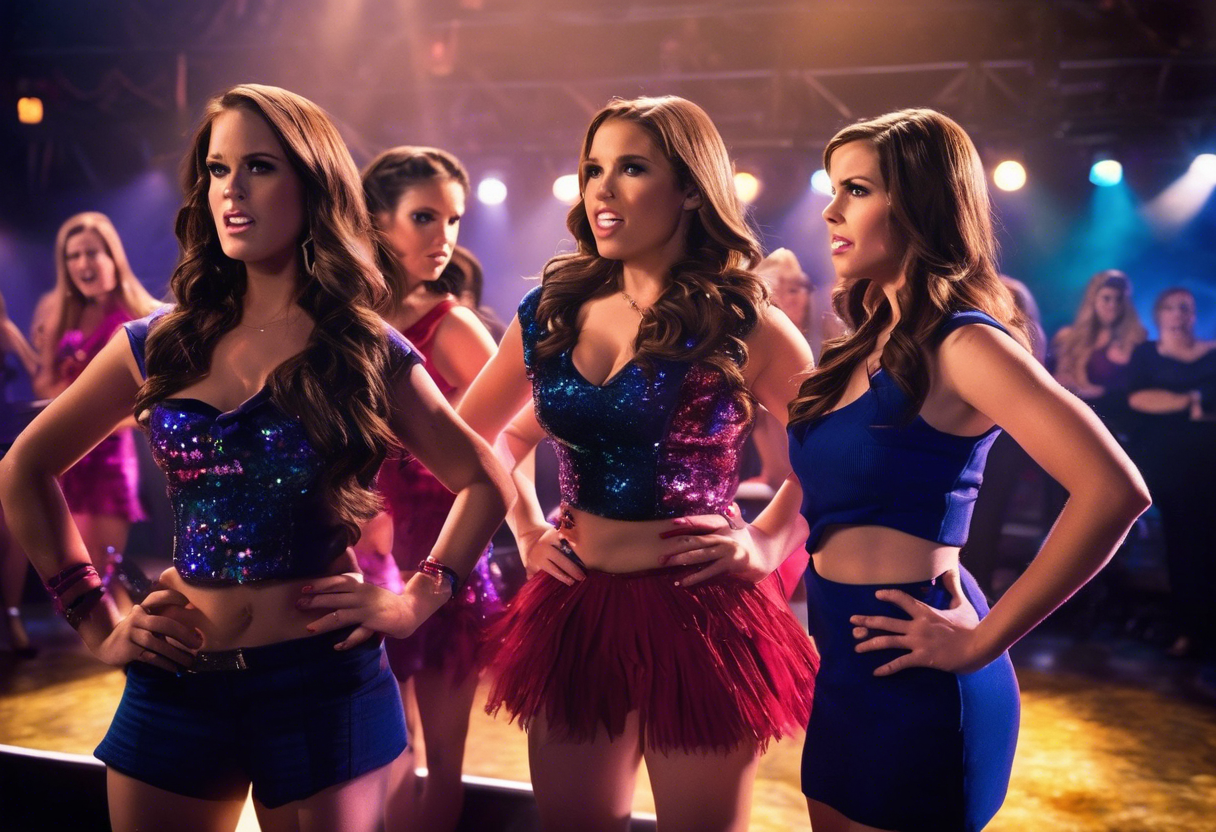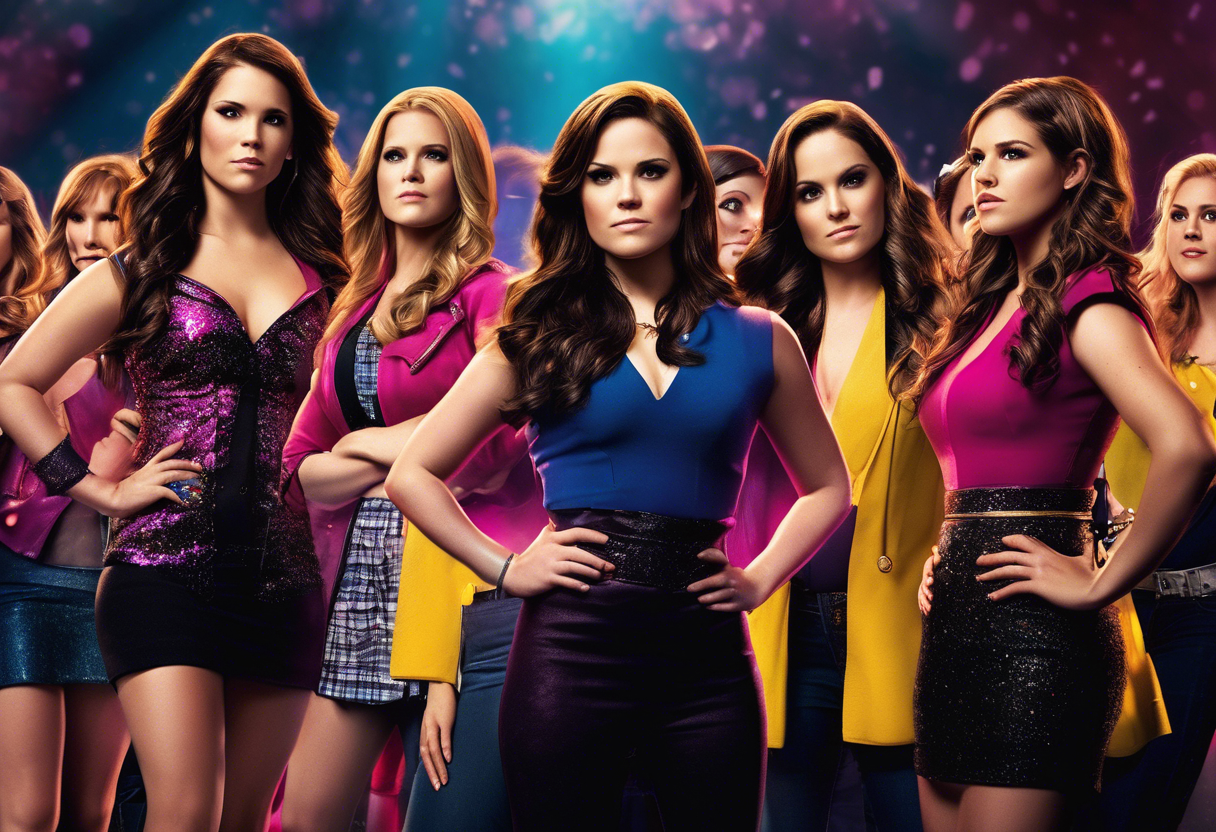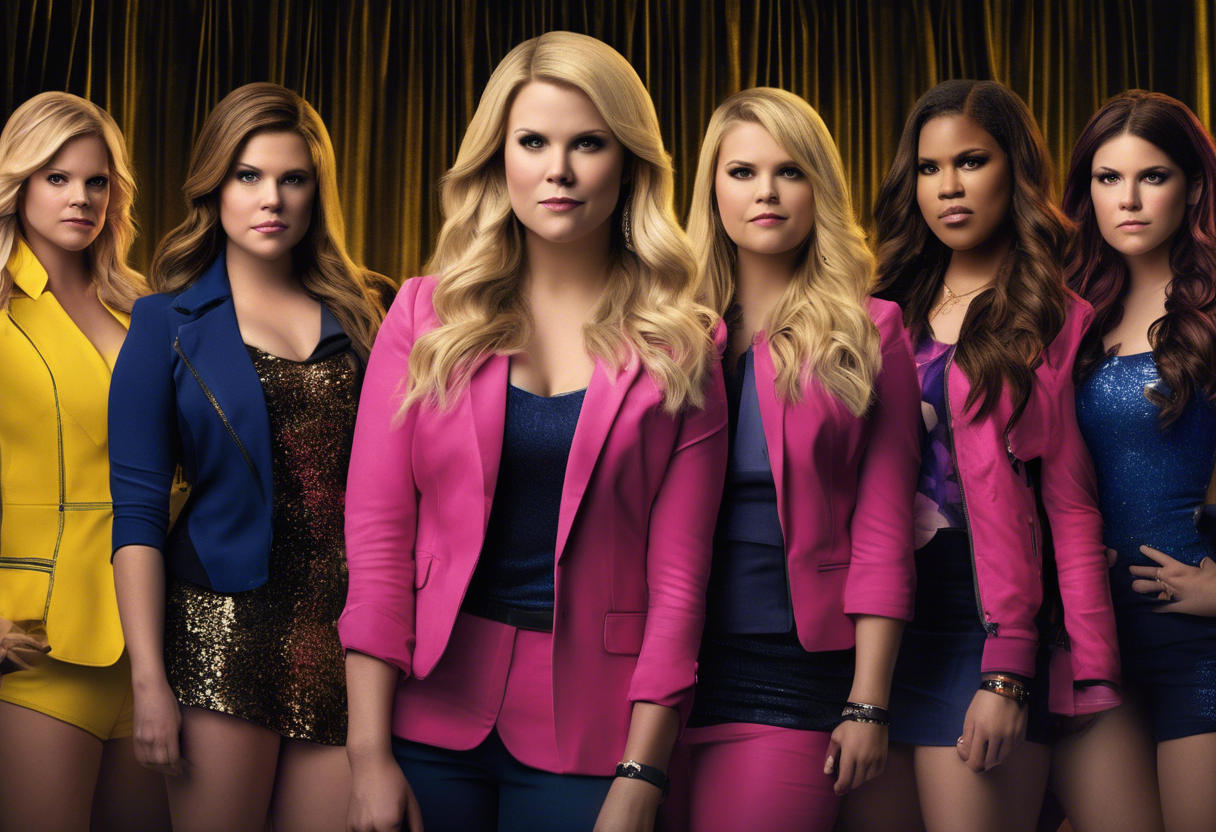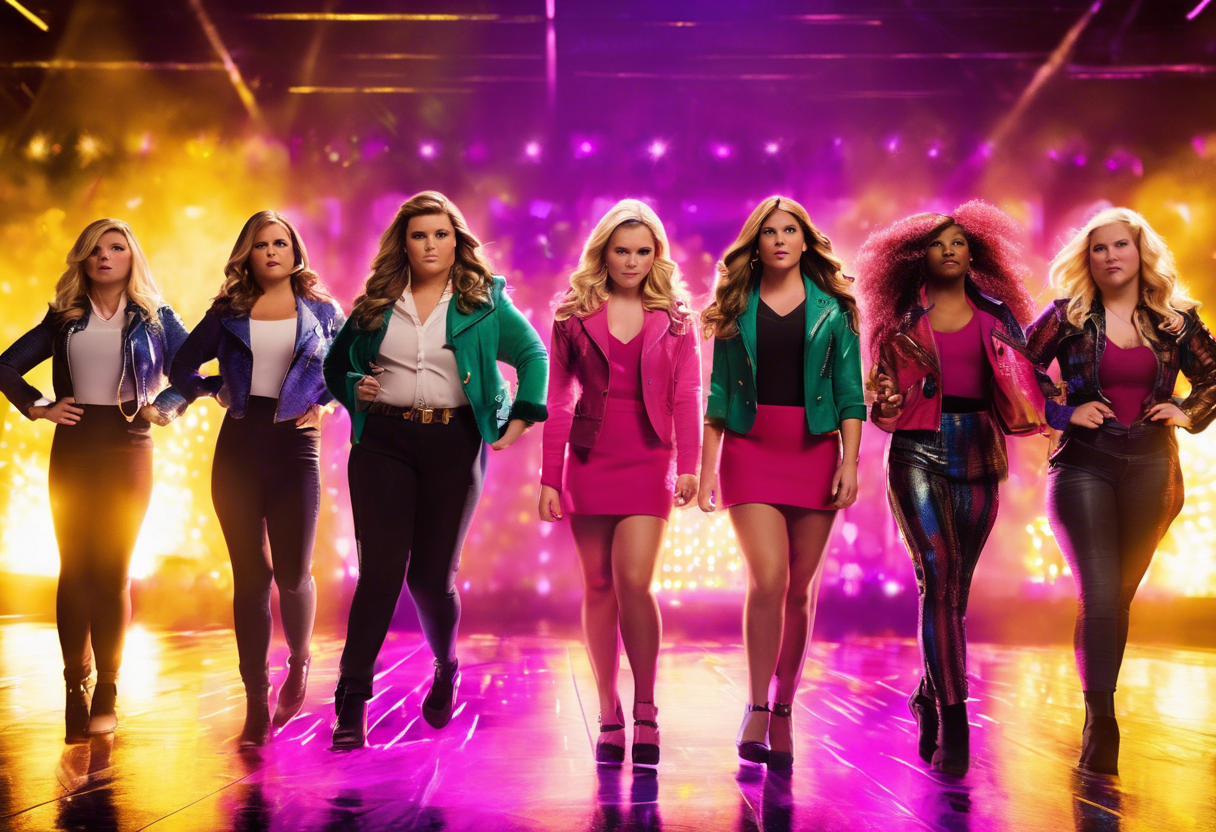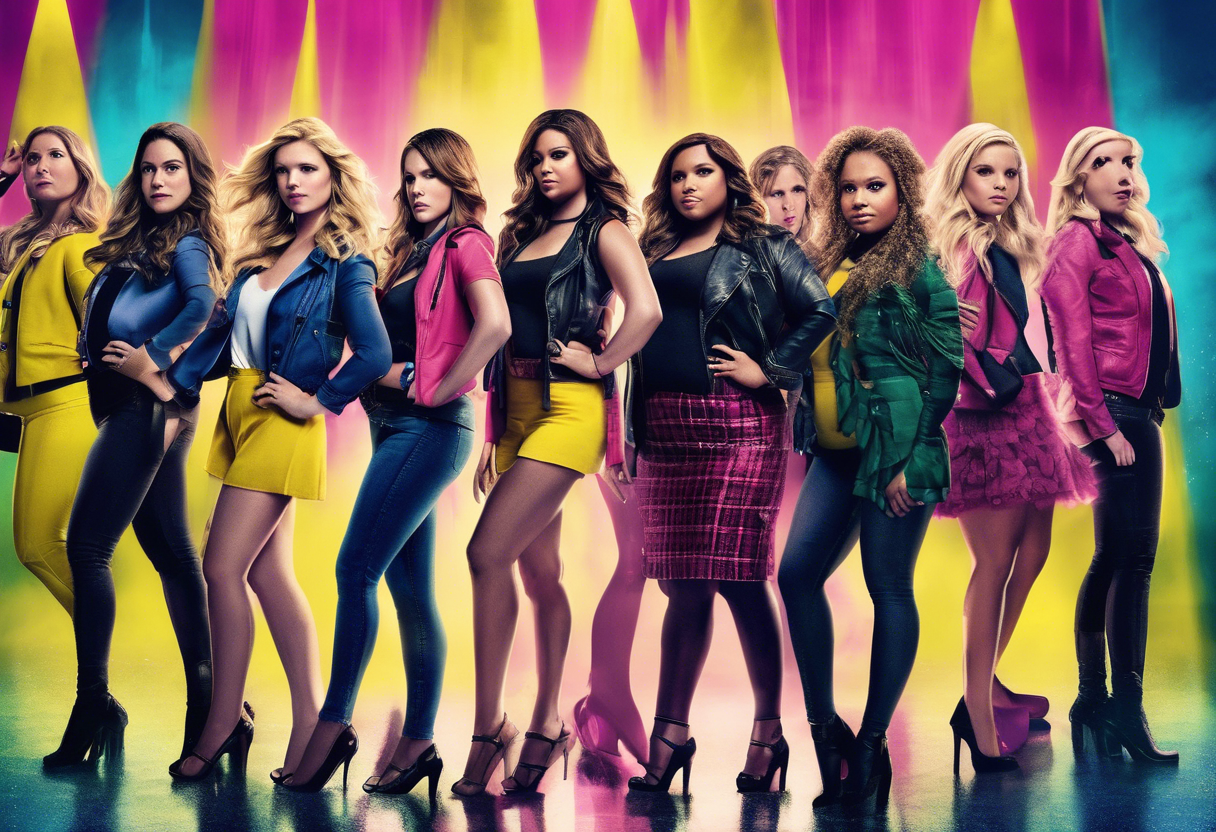Contents
Pitch Perfect 3: A Musical Comedy’s Grand Finale
Introduction
Pitch Perfect 3, released in 2017, is the final installment of the highly successful Pitch Perfect trilogy. Directed by Trish Sie and written by Kay Cannon and Mike White, the film marks a significant departure from its predecessors while maintaining the core elements that made the series beloved. Produced by Universal Pictures, Pitch Perfect 3 features an ensemble cast, including Anna Kendrick, Rebel Wilson, Hailee Steinfeld, and Elizabeth Banks, among others.
The production of Pitch Perfect 3 began in January 2017 in Atlanta, Georgia, and wrapped up in April of the same year [1][2]. The film was released in the United States on December 22, 2017. With a budget of $45 million, it grossed $185 million worldwide, making it the second-highest grossing musical comedy film of all time, behind its predecessor Pitch Perfect 2 [1][3].
What sets Pitch Perfect 3 apart is its ambitious blend of musical comedy with elements of action and adventure, creating a unique and globetrotting narrative that distinguishes it from other films in its genre [4][5].
Plot Summary
The film follows the Barden Bellas, now graduated from college and struggling to find meaningful jobs in their respective fields. Feeling disconnected and missing their time together, they reunite at a bar where Emily (Hailee Steinfeld) apologizes for not being able to keep the group together after college. Aubrey (Anna Camp) convinces them to join a USO (United Service Organizations) tour, which offers them a chance to perform for troops overseas and potentially open for DJ Khaled if they win the competition [2][3].
The Bellas, except for Stacie (Alexis Knapp) who is eight months pregnant, embark on the USO tour. They face stiff competition from other groups that use instruments, a departure from the Bellas’ a cappella style. The tour takes them to various military bases, where they perform and engage in humorous and sometimes chaotic interactions.
A significant subplot involves Fat Amy (Rebel Wilson) being reunited with her estranged father, Fergus (John Lithgow), an international criminal. This reunion adds an action-suspense element to the film, as Amy navigates her complicated family dynamics [5].
Beca (Anna Kendrick) develops a friendship with DJ Khaled’s music producer, Theo (Guy Burnet), and showcases her music production skills, which impresses Theo and eventually DJ Khaled himself [2].
The film culminates in a dramatic and action-packed finale involving a yacht, a mysterious man, and an explosive confrontation, highlighting the Bellas’ camaraderie and resilience in the face of adversity [5].
Themes and Symbolism
At its core, Pitch Perfect 3 explores themes of friendship, identity, and the pursuit of passion. The Bellas’ journey is a metaphor for the challenges faced by young adults transitioning from college to the real world. The film highlights the importance of holding onto friendships and finding one’s true calling, even in the face of adversity.
The character of Fat Amy, with her complex relationship with her father, symbolizes the struggle for identity and the need for family and belonging. Her storyline adds a layer of depth to the film, making it more than just a light-hearted musical comedy [4][5].
The use of music as a central theme continues from the previous films, but in Pitch Perfect 3, it serves as a cohesive thread that binds the characters together. The musical performances are not just entertaining but also reflective of the characters’ emotional states and their journey towards self-discovery [1][4].
Cultural Impact
Pitch Perfect 3 had a significant cultural impact upon its release. It continued the trend of making a cappella music mainstream and inspired a new wave of musical performances and competitions. The film’s blend of music, comedy, and action resonated with a broad audience, making it a box office success.
The film’s influence can be seen in various forms of media, from TV shows to other musical films, which have incorporated similar elements of musical competition and camaraderie. The Pitch Perfect series as a whole has become a cultural phenomenon, with its characters and quotes becoming part of pop culture lexicon [1][3].
Critical Reception
Pitch Perfect 3 received mixed reviews from critics. While some praised the film’s ambition and the performances of the cast, particularly Rebel Wilson and Anna Kendrick, others found it to be a departure from the formula that made the first two films successful [4][5].
Roger Ebert’s review noted that the film was not a retread of its predecessor but instead an ambitious departure, though not necessarily an improvement. The review highlighted the physical comedy and energy of Rebel Wilson but also criticized the misuse of John Lithgow’s talents [4].
Despite the mixed critical reception, the film was well-received by audiences, who appreciated the final outing of the beloved characters. The film’s box office performance was strong, indicating its enduring appeal to fans of the series [1][3].
Legacy
Pitch Perfect 3 marks the conclusion of a trilogy that has left a lasting impact on the musical comedy genre. The film’s unique blend of music, comedy, and action has inspired a new generation of filmmakers and artists.
The Pitch Perfect series has become a staple in cinematic history, known for its energetic performances, witty dialogue, and heartfelt storytelling. The characters and their journeys have resonated with audiences worldwide, making the series a beloved part of many viewers’ lives.
In the years following its release, Pitch Perfect 3 continues to be celebrated for its contribution to the musical comedy genre and its role in the broader cultural landscape. It remains a testament to the power of friendship, music, and the pursuit of one’s passions.

